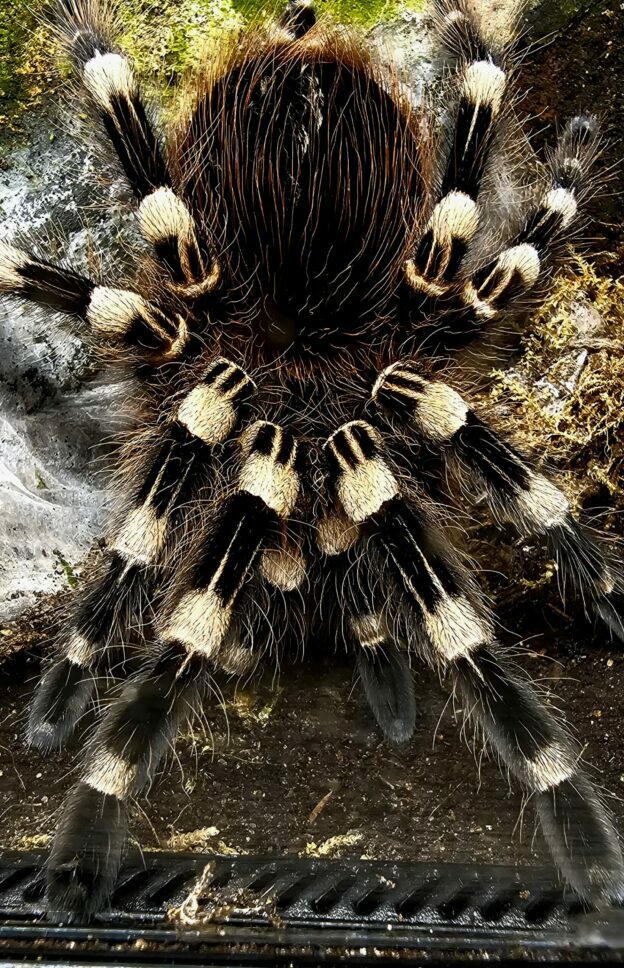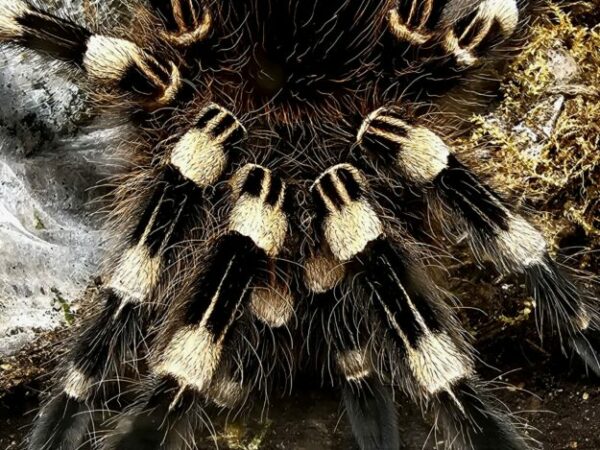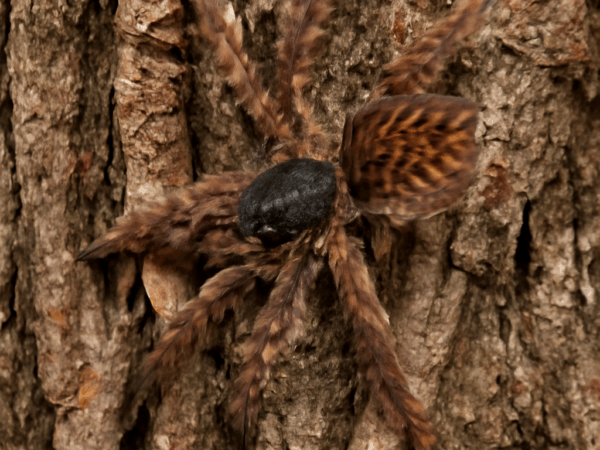Description
Acanthoscurria geniculata (Brazilian whiteknee) is a robust terrestrial tarantula native to the humid forests of northern Brazil. Adults typically reach 6–8 inches (15–20 cm) legspan and are famed for their dramatic coloration: a velvety dark carapace and abdomen contrasted by bright cream-to-white bands on the femora and other leg segments. That contrast makes them one of the most eye-catching large New World tarantulas.
Behavior and temperament: Generally considered relatively calm for a large species, A. geniculata can still be defensive if startled or mishandled. They live primarily on the ground, often creating silk-lined retreats under debris or in shallow burrows. When threatened they may rear their front legs and, like many New World species, can flick urticating hairs — tiny barbed hairs that can irritate skin and eyes.
Care in captivity: Their robust nature and adaptability have made them popular with hobbyists. Provide a secure, well-ventilated enclosure with a substrate deep enough for digging or creating retreats, stable warm temperatures (about 75–85°F / 24–29°C), and moderate humidity. Offer hides such as cork bark or half-log shelters and avoid persistently soggy conditions. Feed adults larger insects less often and juveniles smaller prey more frequently. Calm, experienced keepers may handle them, but handling isn’t necessary and can stress the spider or risk irritation from urticating hairs.
Lifespan and breeding: Females often live a decade or more in captivity; males mature sooner and typically have much shorter lifespans after maturity. Breeding is achievable for experienced keepers but requires careful introductions and post-mating care.
Conservation and notes: Not currently considered highly threatened, wild populations can still be impacted by habitat loss and collection. Choosing captive-bred specimens supports conservation and reduces pressure on wild populations. Their striking appearance, sturdy constitution, and engaging behaviors make A. geniculata a rewarding species for responsible keepers.




Reviews
There are no reviews yet.